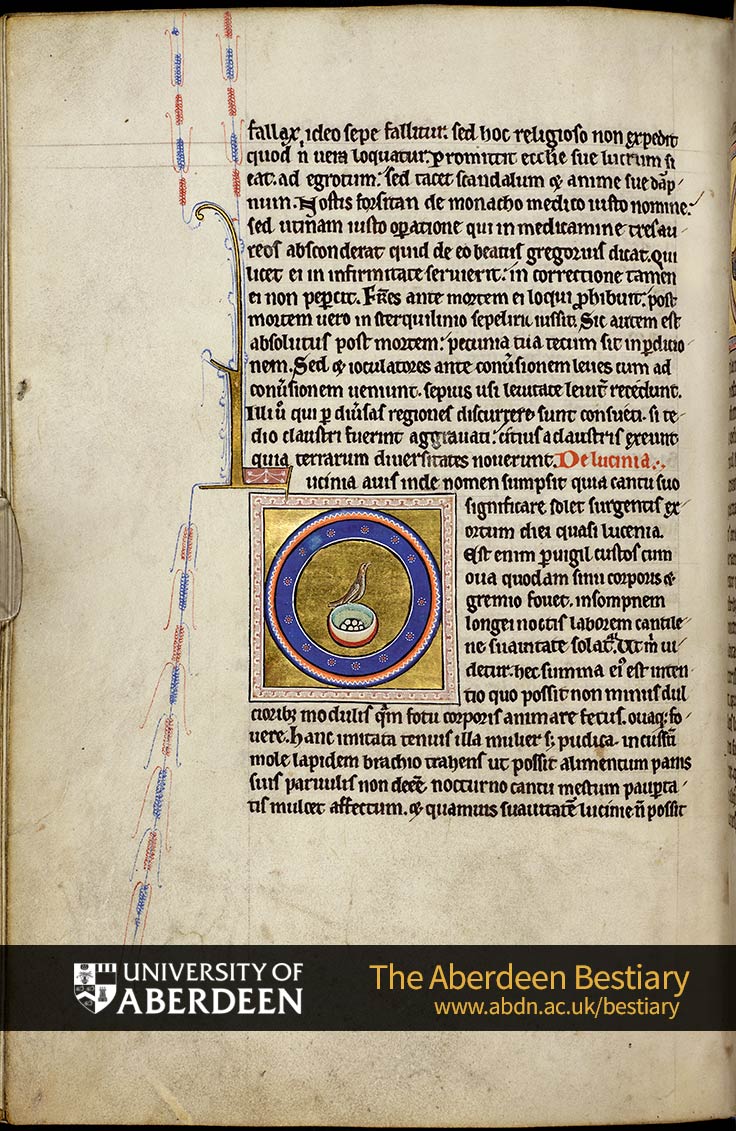Folio 52v - the jay, continued. De lucinia; Of the nightingale
deceptive, he is as a result often mistaken. But it is of no advantage to this religious man to speak nothing but the truth. He promises that his church will benefit if he goes to the sick man, but he says nothing of the temptation to sin and the harm to his soul.
You know, perhaps, of the monk and physician, called Justus - if only he had acted justly! - who hid three gold pieces in a remedy. Perhaps you know, too, what the blessed Gregory says of him. Although Gregory cared for Justus in his sickness, he did not, however, forbear to punish him. He forbade his brothers to speak to Justus before his death and after it, ordered him to be buried in a cess-pit. Moreover, after his death, Justus was absolved with the words: 'Thy money perish with thee' (see Acts, 8:20).
Entertainers also, fickle of mind before conversion, when they come to conversion more often resort to fickleness and with fickleness leave the order.
As for those who are used to wandering off to different places, if they feel oppressed by the irksome routine of the cloister, they quit it more quickly, because they have experienced the variety of life in other lands.
Of the nightingale
The nightingale is so called because it signals with its song the dawn of the new day; a light-bringer, lucenia, so to speak.
It is an ever-watchful sentinel, warming its eggs in a hollow of its body, relieving the sleepless effort of the long night with the sweetness of its song. It seems to me that the main aim of the bird is to hatch its eggs and give life to its young with sweet music no less than with the warmth of its body. The poor but modest mother, her arm dragging the millstone around, that her children may not lack bread, imitates the nightingale, easing the misery of her poverty with a night-time song, and although she cannot imitate the sweetness of the bird,

